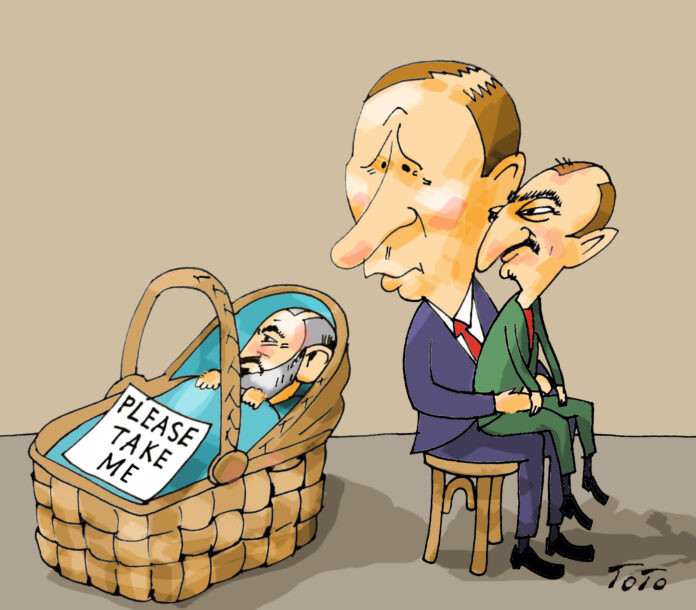Until recently, Armenia faced a threat to its sovereignty from Azerbaijan. After the 2020 war between Armenia and Azerbaijan, President Ilham Aliyev demanded the opening of the “Zangezur Corridor,” which effectively would bisect Armenia’s territory, thereby compromising its sovereignty.
This was Aliyev’s condition for signing a peace treaty after the disastrous 44-Day War.
As if that were not enough, Mr. Aliyev invented another plan to completely take over Armenia’s territory, proclaiming it “Western Azerbaijan.” Indeed, Mr. Aliyev, trying to rewrite history, concocted a theory that the current territory of Armenia had been part of “historic Azerbaijan,” and that was enough reason for Baku to take over Armenia. It is trying actively to add to its landmass, also eying Iran’s Azerbaijan province.
Since this threat was issued by none other than the head of a state, it constituted a declaration of war, which the international community chose to ignore, in the hopes of scoring some of Azerbaijan’s hydrocarbons.
While Armenia was struggling to deal with this peril, all of a sudden, it found itself facing another threat to its sovereignty, this time around from a so-called strategic ally, Russia.
Russian foreign policy is failing to provide any help to its strategic ally and partner in the Collective Security Treaty Organization (CSTO). Instead, it has resorted to its ultimate weapon in its arsenal: the fear factor.








